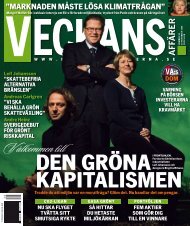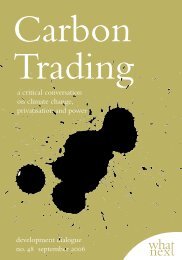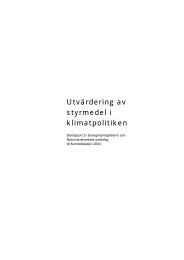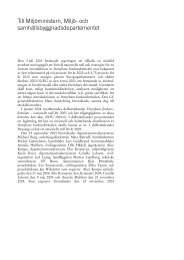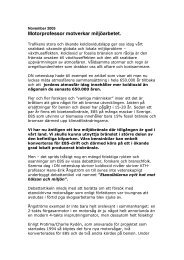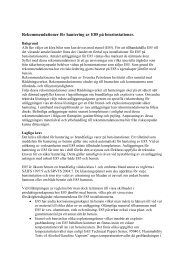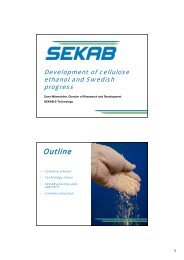Sugarcane ethanol: Contributions to climate change - BAFF
Sugarcane ethanol: Contributions to climate change - BAFF
Sugarcane ethanol: Contributions to climate change - BAFF
Create successful ePaper yourself
Turn your PDF publications into a flip-book with our unique Google optimized e-Paper software.
Chapter 10<br />
Table 1. Policy responses <strong>to</strong> rising food prices.<br />
Eliminated export subsidies:<br />
China eliminated rebates on value-added taxes on exported grains and grain products. The rebate<br />
was effectively an export subsidy that was eliminated.<br />
Export taxes:<br />
China, with food prices still rising after eliminating the value-added tax rebate, imposed an export<br />
tax on a similar list of grains and products.<br />
Argentina raised export taxes on wheat, maize, soybeans, soybean meal, and soybean oil.<br />
Russia and Kazakhstan raised export taxes on wheat.<br />
Malaysia imposed export taxes on palm oil.<br />
Export quantitative restrictions:<br />
Argentina restricted the volume of wheat that could be exported even before raising export taxes<br />
on grains.<br />
Ukraine established quantitative restrictions on wheat exports.<br />
India and Vietnam put quantitative restrictions on rice exports.<br />
Export bans:<br />
Ukraine, Serbia, and India banned wheat exports.<br />
Egypt, Cambodia, Vietnam, and Indonesia banned rice exports. India, the world’s third largest<br />
rice exporter, banned exports of rice other than basmati, significantly reducing global exportable<br />
supplies.<br />
Kazakhstan banned exports of oilseeds and vegetable oils. Early in 2008, importing countries also<br />
began <strong>to</strong> take protective policy measures <strong>to</strong> combat rising food prices. Their objective was <strong>to</strong> make<br />
high-cost imports available <strong>to</strong> consumers at lower prices. A partial list of policy <strong>change</strong>s follows.<br />
The following countries reduced import tariffs:<br />
India (wheat flour).<br />
Indonesia (soybeans and wheat; streamlined the process for importing wheat flour).<br />
Serbia (wheat).<br />
Thailand (pork).<br />
EU (grains).<br />
Korea and Mongolia (various food commodities)<br />
Subsidizing consumers:<br />
Some countries, including Morocco and Venezuela, buy food commodities at high world prices and<br />
subsidize their distribution <strong>to</strong> consumers.<br />
Other decisions by importers:<br />
Iran imported maize from the United States, something that has occurred rarely – only when they<br />
could not procure maize elsewhere at reasonable prices.<br />
The policies adopted by importing countries also <strong>change</strong>d price relationships in world markets. Their<br />
policy <strong>change</strong>s increased the global demand for food commodities even when world prices were<br />
already rapidly escalating.<br />
Source: Trostle (2008).<br />
236 <strong>Sugarcane</strong> <strong>ethanol</strong>



